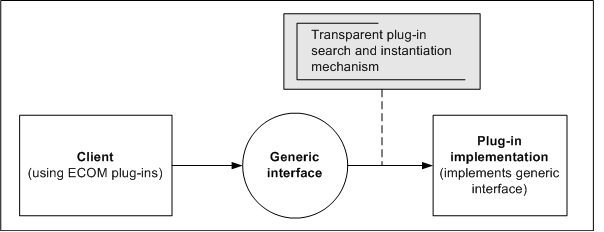Plug-ins
Plug-ins connect to the system using the EPOC Component Object Model (ECom). ECom is based on client/server architecture and provides services to instantiate, resolve, and destroy instances of plug-ins at run time. For more information, see the ECom Architecture .
A hostile or malfunctioning plug-in may cause crashes or security leaks, even on otherwise well-tested applications. The platform security architecture protects the processes by verifying that the plug-in has equal or greater set of capabilities than the process in which it is loaded. For more information, see the ECom and the Platform Security Architecture .
For examples, see Plug-in Framework (ECom) Examples .
Communication plug-ins
It is possible to use plug-ins to implement additional functionality to serial, socket, and messaging frameworks. These plug-ins are especially important for security because they deal with communication.
-
For serial communication there are serial protocol modules (CSY modules ), which are loaded by the Serial Comms Server. For more information on serial communication, see Serial Communications Server .
-
For socket-based communication there are protocol modules (PRT), which are loaded by the Socket Server. For more information on socket-based communication, see Socket Server .
-
For messaging there are Message Type Modules (MTM), which include both client and server components. MTMs are a set of dll s rather than a single dll . For more information, see Message Type Module .
Copyright ©2010 Nokia Corporation and/or its subsidiary(-ies).
All rights
reserved. Unless otherwise stated, these materials are provided under the terms of the Eclipse Public License
v1.0.
